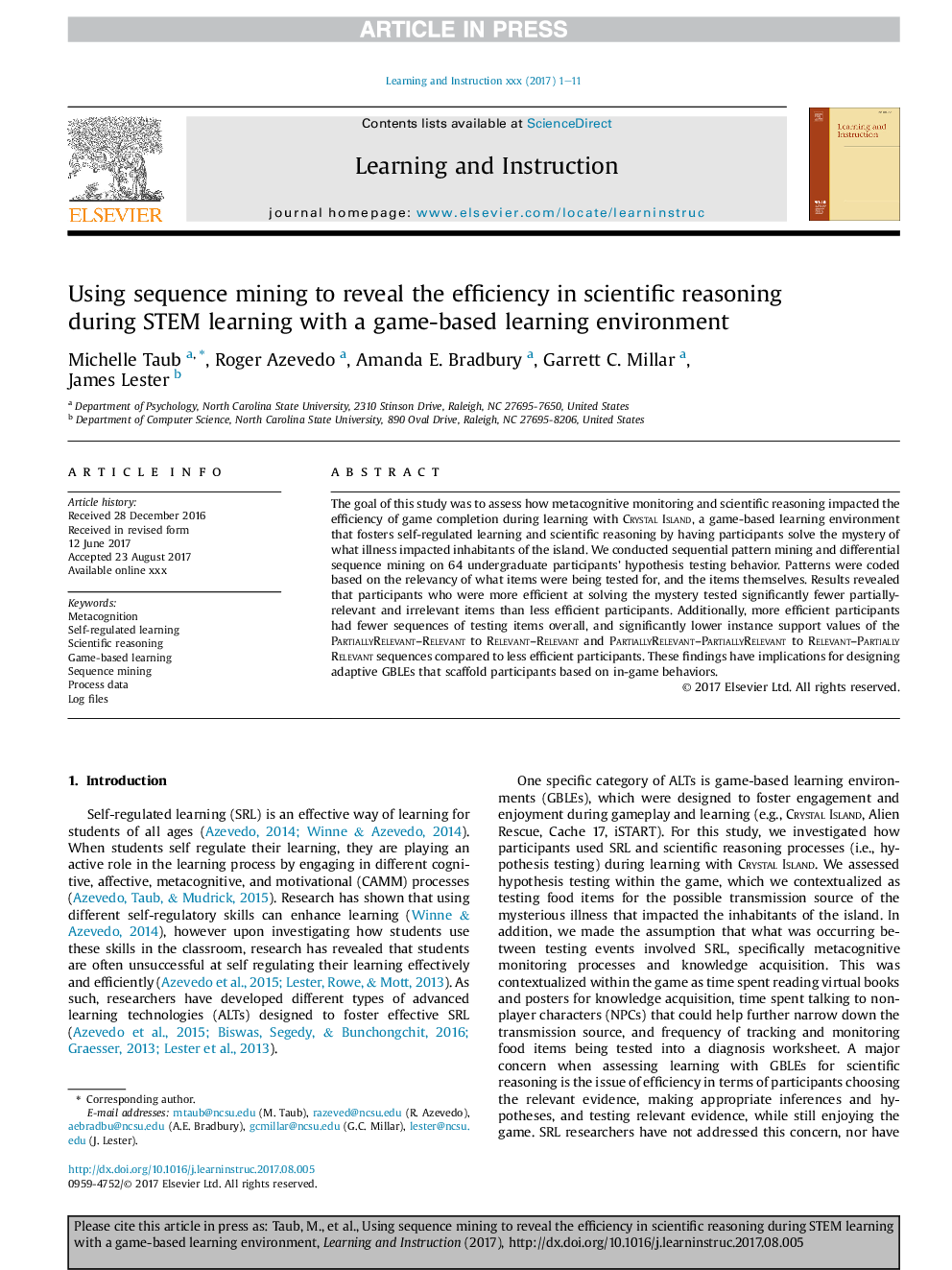| Article ID | Journal | Published Year | Pages | File Type |
|---|---|---|---|---|
| 6845652 | Learning and Instruction | 2018 | 11 Pages |
Abstract
The goal of this study was to assess how metacognitive monitoring and scientific reasoning impacted the efficiency of game completion during learning with Crystal Island, a game-based learning environment that fosters self-regulated learning and scientific reasoning by having participants solve the mystery of what illness impacted inhabitants of the island. We conducted sequential pattern mining and differential sequence mining on 64 undergraduate participants' hypothesis testing behavior. Patterns were coded based on the relevancy of what items were being tested for, and the items themselves. Results revealed that participants who were more efficient at solving the mystery tested significantly fewer partially-relevant and irrelevant items than less efficient participants. Additionally, more efficient participants had fewer sequences of testing items overall, and significantly lower instance support values of the PartiallyRelevant--Relevant to Relevant--Relevant and PartiallyRelevant--PartiallyRelevant to Relevant--Partially Relevant sequences compared to less efficient participants. These findings have implications for designing adaptive GBLEs that scaffold participants based on in-game behaviors.
Keywords
Related Topics
Social Sciences and Humanities
Psychology
Developmental and Educational Psychology
Authors
Michelle Taub, Roger Azevedo, Amanda E. Bradbury, Garrett C. Millar, James Lester,
